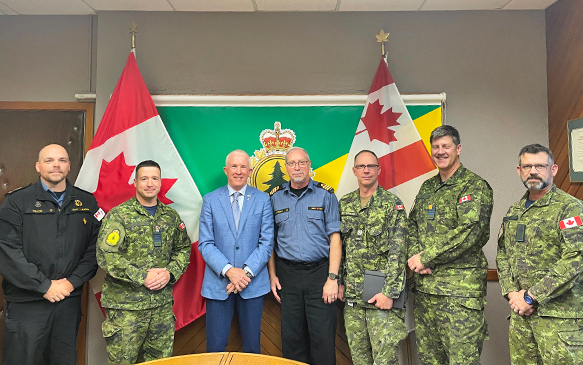From 26-29 September, Borden hosted Gregory Lick, ombudsman for the Department of National Defence (DND) and the Canadian Armed Forces (CAF). Ombudsman Lick met with leadership and various constituent groups over the four days to educate on the role of the ombudsman’s office and understand the issues local to Borden.
What is the Ombudsman?
Operating independently from the military chain of command and civilian management, the role of the ombudsman is to ensure DND employees and CAF serving and former members and their families receive fair treatment by both the government and the CAF, protect their access to programs, services and resources and make recommendations for program improvements, and investigate systemic problems.
“We’re here to help you,” said Lick. “We’re kind of the oil in the machine to help it work better and reduce some of the friction.”
Some of the resources they provide on their website include financial and educational support, and FAQs for military postings.
A big part of their mandate is to help make sure people are informed.
“If they’re better informed, they can hopefully prevent a problem,” said Lick. “I come from the Search and Rescue world, and if there’s any way that we can make an investment that can help people prevent a problem, that’s a good investment.”
Hearing from Base Borden
Rising costs of living and housing, access to childcare, and particularly emergency childcare, and support to military families were common themes brought up during Borden’s focused town hall sessions with the ombudsman.
Most of the issues were not unique to Borden. Despite Borden’s population skewing heavily younger than other bases as the largest training base in Canada, the themes raised are ones the ombudsman has been hearing across the country.
What stood out to him was the number of people who came forward with innovative ideas for solutions they just didn’t know how to put into motion, members and staff optimistic in spite of the barriers they are facing.
“I really did find a very passionate, sometimes emotional, and powerful voice for people that just want to do the right thing,” said Lick.
Base Borden leadership was briefed at the end of the visit on the key issues that were brought up in a confidential manner, said Lick.
“Our hope is that we’ve communicated what we can do for the base, and ultimately how if they have an issue they know where to turn to, and also demystified in some cases what the ombudsman’s office is and what it does.”
Mental health support: A national focus
Currently, the ombudsman is focusing on investigating mental health support for primary reservists in domestic operations.
Why primary reservists? Unlike regular force members, reservists receive health care from the public, rather than the military when not under contract, meaning they often face longer delays and barriers with accessing the mental health care they need.
“[W]hen they come off contract, possibly with some mental health issues, they go into the provincial or territorial system and they may not get the care that they need,” said Lick. “And there’s a lack of continuity of care, which is a big thing in medical practice, and they fall through the cracks.”
Mental health is a personal issue for Lick. During his time with the Canadian Coast Guard, three of his colleagues died in a helicopter accident. The experience led to a personal understanding of the importance and impact of mental health.
He pointed to recent events like fires, floods, and Hurricane Fiona, where reservists have been called in to support.
“If the provinces and territories are going to rely on the military to do the work, we’re going to have to work a little bit better at making sure they have the care that they’re responsible for after the fact.”
A public letter to the Base Commander summarizing the ombudsman’s September visit to Borden will be made available on the ombudsman website. Ideas, problems, and ideas for solutions can be shared with the ombudsman office at any time, with this reminder from the ombudsman about what you can expect when you reach out:
“When people call our intake office, you have a warm human being on the end of the line who wants to help you.”
By: Emily Nakeff, Editor






